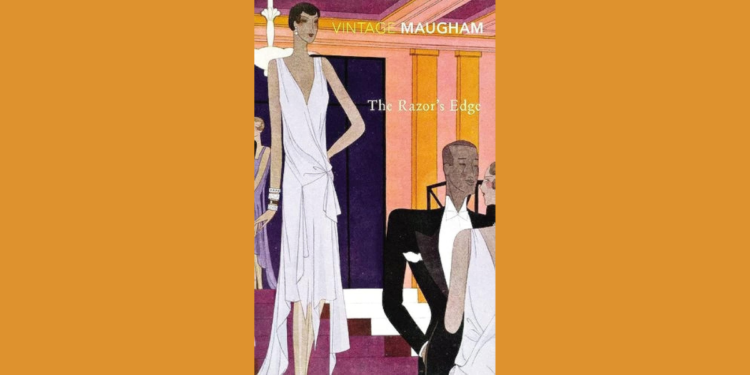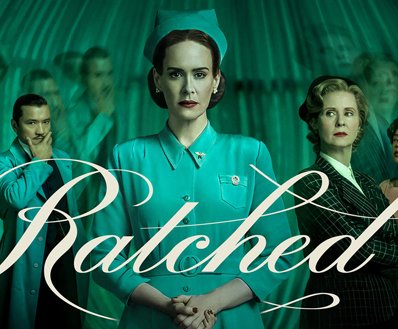W. Somerset Maugham’s novel “The Razor’s Edge,” published in 1944, is a timeless classic that explores the quest for meaning, spiritual enlightenment, and the pursuit of a life of purpose. The novel is a poignant exploration of the human condition and the various paths individuals take to find fulfillment and meaning in their lives. In this comprehensive review, we will delve into the themes, characters, and narrative structure of “The Razor’s Edge,” as well as its historical context and enduring significance in literature.
Introduction: The Search for Meaning
“The Razor’s Edge” opens with the narrator, W. Somerset Maugham, introducing the novel’s central character, Larry Darrell. Larry returns to Chicago from World War I deeply affected by his experiences in the war and profoundly changed. He is no longer content with the superficial pursuits of society and embarks on a journey to find the meaning of life. The novel explores Larry’s quest for enlightenment, and through his story, Maugham presents a range of characters who also seek meaning and purpose in their lives.
Character Analysis: Larry Darrell
Larry Darrell is the novel’s central character and represents the embodiment of the search for enlightenment and a meaningful existence. After World War I, Larry experiences a profound disillusionment with the materialistic and superficial values of society. He rejects the conventional path of acquiring wealth and status and chooses instead to seek self-realization and spiritual understanding.
Larry’s quest takes him on a transformative journey that spans continents. He travels to Paris, India, and the Himalayas, seeking wisdom from various spiritual teachers and immersing himself in the study of Eastern philosophy. His spiritual pursuits lead to moments of illumination, and he emerges as a spiritually awakened individual. Larry’s character serves as a symbol of the human desire to transcend the mundane and discover a deeper sense of purpose.
Character Analysis: Isabel Bradley
Isabel Bradley is Larry’s childhood sweetheart and later becomes his wife. She represents the conventional values of society and is deeply attached to material wealth and social status. Isabel’s character arc is a contrast to Larry’s journey. She struggles to understand and support Larry’s quest for enlightenment, often clashing with him over their differing priorities. Isabel’s character highlights the tension between worldly pursuits and the search for higher meaning.
Character Analysis: Elliott Templeton
Elliott Templeton is a wealthy American expatriate living in Paris. He is a socialite who values appearances, class, and prestige. His character embodies the societal expectations of the upper class and their preoccupation with maintaining a façade of respectability. Despite his superficiality, Elliott is not portrayed as a villain; instead, he serves as a symbol of the empty pursuit of social status.
Character Analysis: Sophie MacDonald
Sophie MacDonald is a tragic figure in the novel. She is a talented singer who falls into a life of self-destructive behavior, struggling with alcoholism and mental health issues. Larry shows compassion and concern for Sophie and tries to help her, reflecting his empathy and desire to alleviate suffering.
Character Analysis: Gray Maturin
Gray Maturin is Isabel’s wealthy uncle. He is a successful businessman and represents the epitome of financial success. Gray’s character emphasizes the contrast between Larry’s spiritual quest and the pursuit of material wealth. He is supportive of Isabel’s choices and often serves as a foil to Larry’s character.
Character Analysis: Suzanne Rouvier
Suzanne Rouvier is a French woman who crosses paths with Larry in Paris. She introduces him to the teachings of the Bhagavad Gita and plays a crucial role in his spiritual awakening. Suzanne embodies the idea that spiritual mentors can come from unexpected sources.
Themes:
“The Razor’s Edge” explores several themes that continue to resonate with readers and remain relevant in contemporary society:
- The Search for Meaning: At its core, the novel is a reflection on the human quest for meaning and purpose in life. Larry’s journey to find enlightenment and spiritual understanding represents the universal desire to transcend the superficial and discover a deeper sense of fulfillment.
- Spirituality and Enlightenment: The novel delves into various spiritual and philosophical traditions, including Eastern philosophies and the search for self-realization. Larry’s immersion in these traditions reflects the timeless pursuit of spiritual enlightenment and self-discovery.
- Society and Conformity: The tension between societal norms and the desire for individuality and self-expression is a central theme. Characters like Isabel and Elliott represent the pressures of conformity and societal expectations.
- Class and Status: The novel explores the significance of class and social status and how these factors can shape individuals’ lives and choices. The characters of Gray and Elliott embody the pursuit of class and prestige.
- Empathy and Compassion: Larry’s empathy and compassion, particularly for Sophie, reflect the importance of caring for the well-being of others. His character illustrates the transformative power of empathy and the desire to alleviate suffering.
- The Impact of War: World War I has a profound impact on the characters, particularly Larry. The war serves as a catalyst for his search for meaning and self-discovery, highlighting the lasting effects of war on individuals.
Narrative Structure and Style:
“The Razor’s Edge” is narrated in the first person by W. Somerset Maugham himself, who is a character in the novel. Maugham serves as both narrator and observer, interacting with the other characters and providing insights into their lives. His presence in the narrative adds depth and complexity to the storytelling.
The novel is non-linear, with Maugham recounting events from the past and interweaving them with the present. This narrative structure allows for a deeper exploration of the characters and their development over time. Maugham’s style is introspective and philosophical, inviting readers to ponder the themes and questions raised by the story.
Historical and Cultural Context:
“The Razor’s Edge” is set in the aftermath of World War I, a period marked by significant social and cultural change. The war had a profound impact on society and individuals, leading to a sense of disillusionment and a search for meaning. The 1920s and 1930s, known as the interwar period, saw shifts in social values, artistic expression, and intellectual exploration. The novel reflects the spirit of this era, as characters grapple with the shifting dynamics of a post-war world.
The Impact of “The Razor’s Edge”:
“The Razor’s Edge” has left a lasting impact on literature and continues to be a thought-provoking and influential work for several reasons:
- Exploration of Existential Questions: The novel raises profound existential questions about the purpose of life, the search for meaning, and the pursuit of self-realization. These questions resonate with readers and invite contemplation.
- Character Complexity: The characters in the novel are multifaceted and relatable. Readers can identify with their struggles and aspirations, making the story emotionally engaging.
- Universal Themes: The themes of the novel—such as the search for meaning, spirituality, and societal expectations—are universal and timeless. They transcend the specific historical context of the book.
- Philosophical Exploration: “The Razor’s Edge” delves into philosophical and spiritual ideas, introducing readers to Eastern philosophies and the concept of the self. The novel encourages readers to explore these philosophies further.
- Adaptations: The book has been adapted into various films, the most notable being the 1946 film directed by Edmund Goulding and the 1984 film directed by John Byrum. These adaptations have introduced the story to new audiences.
Conclusion: The Timeless Quest for Meaning
“The Razor’s Edge” by W. Somerset Maugham is a timeless exploration of the human quest for meaning and enlightenment. Through its characters and their diverse paths, the novel delves into the complexities of life, the tension between conformity and individuality, and the enduring desire to find purpose. The themes and questions raised in the book continue to resonate with readers, making it a classic work that invites contemplation and self-reflection. “The Razor’s Edge” serves as a reminder that the search for meaning is a journey that transcends time and remains an integral part of the human experience.









